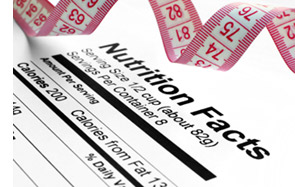Calories In, Calories Out
 "Doc, why aren't I losing weight?" is a question I get every once in a while, and it is a subject that is actually quite simple, but leads to a great deal of confusion.
"Doc, why aren't I losing weight?" is a question I get every once in a while, and it is a subject that is actually quite simple, but leads to a great deal of confusion.
Your weight, my weight, everyone's weight is really a matter of calories in and calories out. In other words, how many calories do you consume (calories in) and how many calories do you use up, or burn, in a day (calories out).
If you burn more calories than you consume, you will lose weight. If you consume more calories than you burn, you will gain weight. It really is that simple!
Many of you have no doubt been told to "count calories" in the past. The reason for this is so you will know how many calories you are consuming (calories in). As long as that is less than the number of calories you are burning (calories out), you will lose weight (calories in less than calories out). So figuring calories in is a matter of being aware of what you put into your body by, for example, reading and understanding nutritional labels. As an aside, learning to read nutritional labels is critical for success with this surgery, or any weight loss.
The other half of the equation then is calories out, in other words, how many calories do I burn up in a typical day? This is equal to your Basal Metabolic Rate (BMR), which is the amount of calories your body needs just to maintain itself, even if you just stayed in bed all day, plus any calories you burn up during your activities for the day (e.g., walking around, climbing stairs, exercise). You can get an idea of your BMR by going to the following website: http://www.bmi-calculator.net/bmr-calculator/ This will calculate your BMR based on your age, weight, and height so it is not exact, but will give you a ballpark figure. You might be surprised, by the way, as your BMR may be less than you think!
So the surest way to lose weight is to first calculate your BMR using the website mentioned above. Then make sure that the amount of calories you consume is less than your BMR. If you do this and exercise, it is a virtual guarantee you will lose weight as the difference between calories in and calories out will be substantial.
Let me give you a concrete example. If you are a 40-year-old woman who is 250 pounds and 5 feet, 5 inches tall, the BMR calculator will tell you that your BMR is 1860 calories. If you then consume 1200 calories per day and exercise, you can see how the weight will come off as the difference between calories in and calories out will be at least 660 calories (1860 -1200); the loss will be greater the more activity you engage in. As your activity increases your metabolism increases, and you will burn more than 1860 calories per day... and lose more weight.
You can play with the BMR calculator and see how metabolism changes with age and weight. As you lose weight, your metabolism slows down (it doesn't take as much energy to move a lighter body). It also slows down as you age (generally because of less muscle mass). This explains the dramatic weight loss after surgery, particularly gastric bypass. In the first several months after surgery, the average calories in per day is probably only 300-500 calories, so there is a huge difference between calories in and calories out!
 Michael Bilof, MD is a Center of Excellence surgeon practicing in New Jersey. He has been performing bariatric surgery exclusively for over eight years with offices in Millburn and Bayville, New Jersey.
Michael Bilof, MD is a Center of Excellence surgeon practicing in New Jersey. He has been performing bariatric surgery exclusively for over eight years with offices in Millburn and Bayville, New Jersey.
Contact info:
973.218.1990,
732.269.6800
[email protected], www.gsbwc.com


